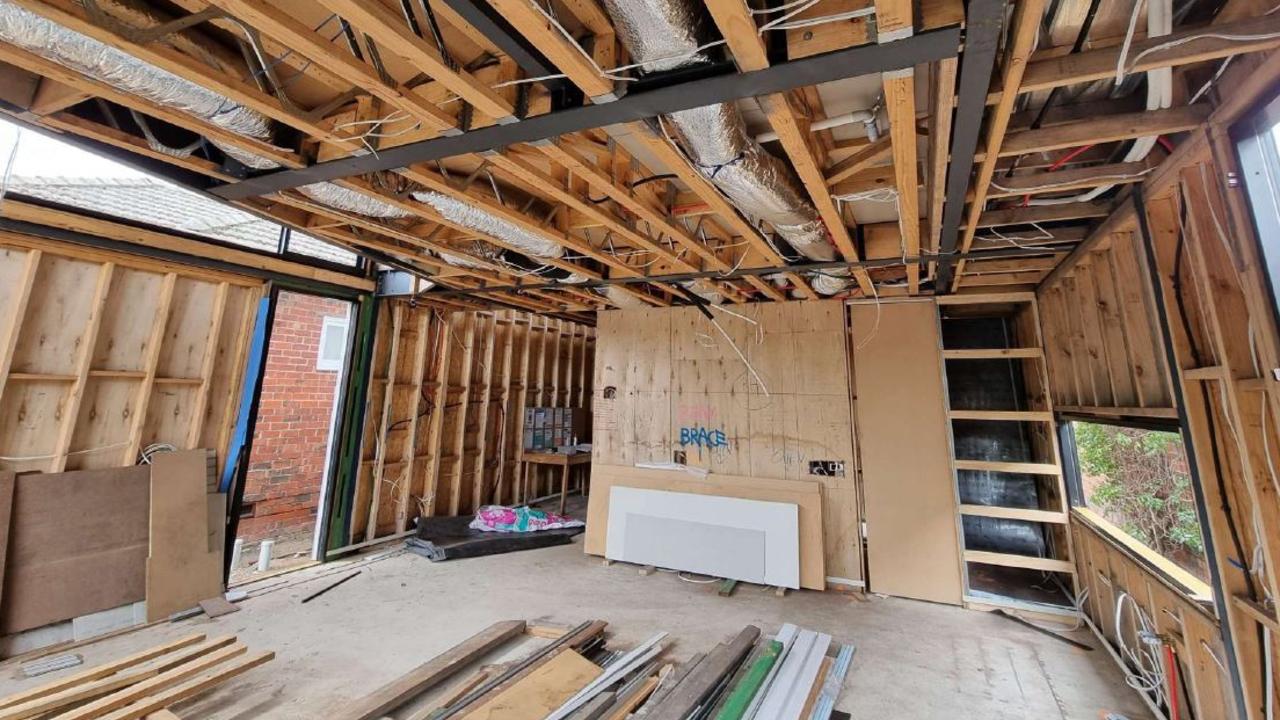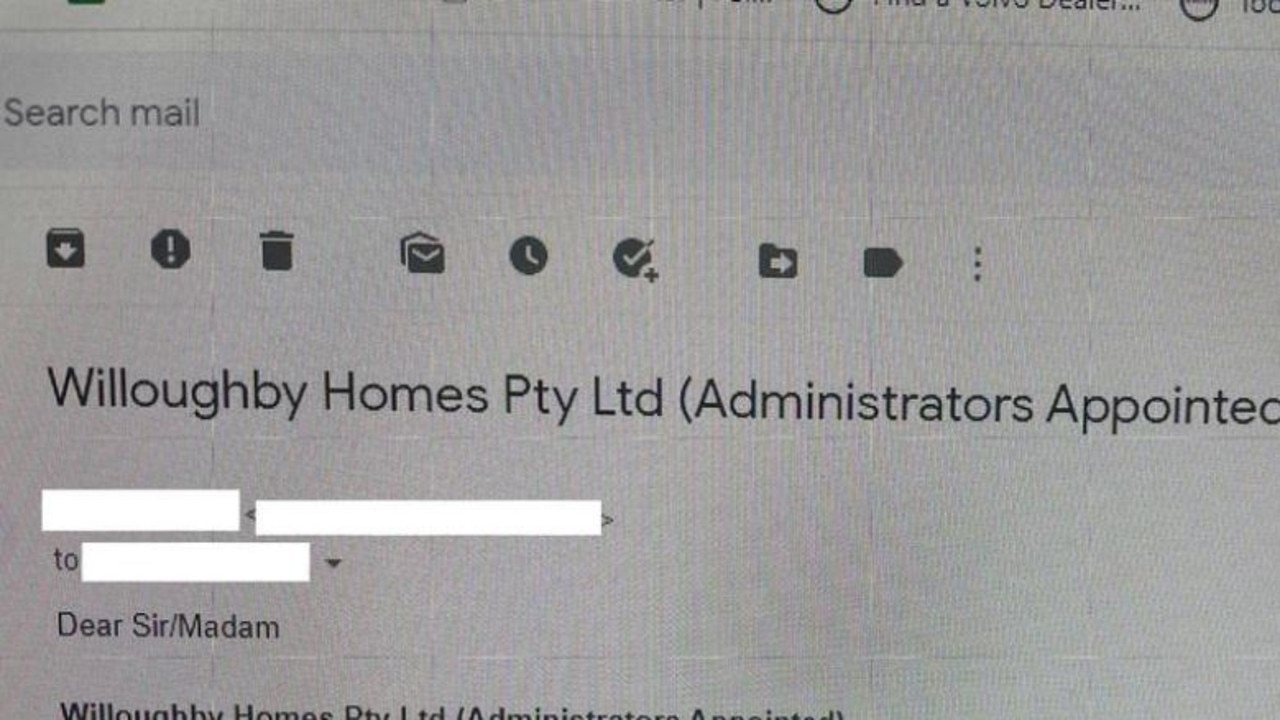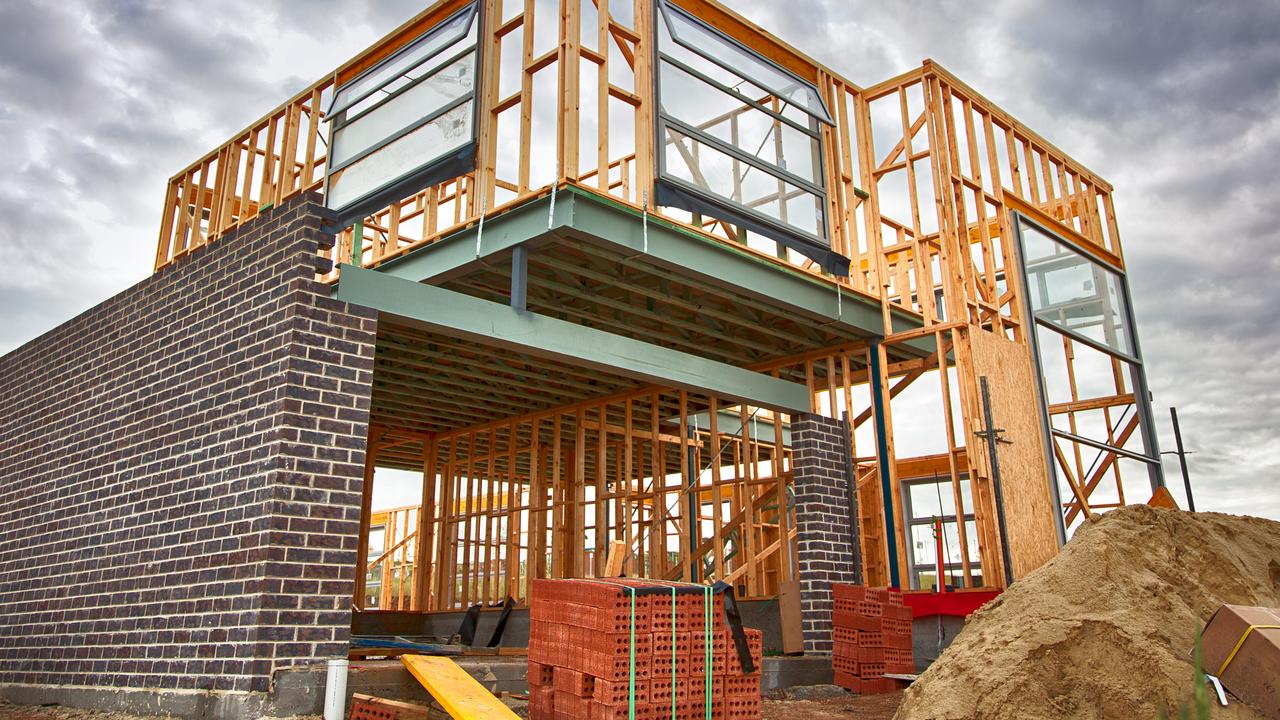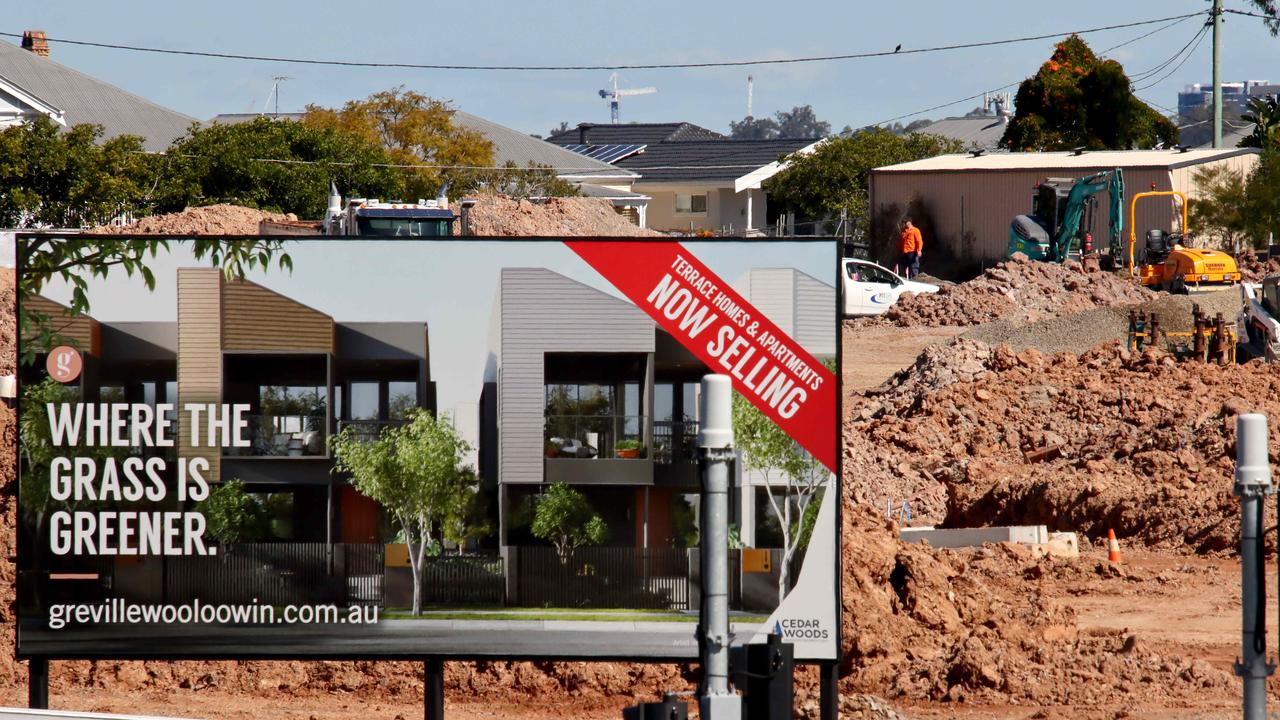A Melbourne-based builder has collapsed with approximately $1 million in outstanding debt owed to 50 creditors, according to the liquidators.
The construction firm called Blint Builders went into voluntary liquidation after news.com.au revealed a number of homeowners were experiencing a “horrendous” amount of stress as they had poured hundreds of thousands of dollars into half finished homes that had sat untouched for months.
Cliff Sanderson from insolvency firm Dissolve has been appointed to handle Blint Builder’s liquidation.
He said Blint’s owner had told him that the company had “ceased to trade”.
“In our conversations with him, which are yet to be verified, he told us there are 50 creditors with approximately $1 million in debt and I expect that number to go up and the money will go up in excess of that,” he told news. com.au.
‘Horrifying strain’
Mr Sanderson said he was also told that “half a dozen” homeowners were impacted by Blint’s demise, but was waiting on more information to be supplied by the builder.
One family impacted are Dean and Nolle Fuller, who have five children between them, and have already shelled out $480,000 to Blint, since signing on in January.
The couple had demolished their existing home last November and had engaged Blint Builders to build two townhouses for $1.5 million, due to be delivered early next year.
No work has been done on the site since June and it has been broken into after construction stopped leaving it a “mess”, Mr Fuller said.
“In that time, we have had two lots of vandalizing and trespassing and damage caused to our property, which has been lodged with police,” Mr Fuller told news.com.au.
“We have had a truck back up and dump three to four square meters of rubble and waste material on the property and the truck also smashed the gates down.
“Recently someone turned up and stole the electrical meter box within the property.”
The project manager said the experience had caused an “unbelievable amount of stress and anxiety”.
Another family who are under “horrendous strain” are Tony and Jo Firman and their two children, who are building a home specially designed for her as she has multiple sclerosis.
The couple said they have paid $1.14 million so far to the builder and the house is at lock up stage but no work has happened since early June, according to Mr Firman.
“Even with the full insurance payout it might not be enough money. We skimped and saved and borrowed quite a substantial amount of money. We are worried we won’t make enough money to repay the loan and be able to live,” Mr Firman told news.com.au earlier this week.
Landlord owed $14k
Blint Builder’s office in the Melbourne suburb of Highett was also seized by the landlord.
Legal documents posted on the front door show the landlord has executed their right to re-entry, terminating the lease and demanding all property be removed and the keys be returned.
The legal notice also revealed that Blint Builders owe the landlord close to $14,000 in unpaid rent and rates.
Mr Sanderson said statistically it was rare for a dividend to be paid to unsecured creditors from a home builder as they “rarely have any assets”.
“Recently released ASIC corporate insolvency statistics reveal that the construction sector accounted for 28 per cent of all insolvencies for the June 2022 quarter,” he said.
“Construction is the largest sector in the statistics, second is accommodation and food with 16 per cent of the total, while 28 per cent is the highest ever percentage of total insolvencies for construction, equal with the December 2021 quarter.
“On average going back to 2013, construction makes up 19 per cent of total insolvencies.”
construction crisis
Overall, the construction industry has been plagued with a spate of collapses caused by a perfect storm of supply chain disruptions, skilled labor shortages, skyrocketing costs of materials and logistics, and extreme weather events.
Earlier this year, two major Australian construction companies, Gold Coast-based Condev and industry giant Probuild, went into liquidation.
Victorian construction companies have been particularly hard hit by the crisis.
Two building companies from Victoria were casualties of the crisis having gone into liquidation at the end of June, with one homeowner having forked out $300,000 for a now half-built house.
Then there have been smaller operators like Hotondo Homes Horsham, which was also based in Victoria and a franchisee of a national construction firm – which collapsed earlier this month affecting 11 homeowners with $1.2 million in outstanding debt.
It is the second Hotondo Homes franchisee to go under this year, with its Hobart branch collapsing in January owing $1.3 million to creditors, according to a report from liquidator Revive Financial.
Norris Construction Group, which was in Geelong, collapsed in March with $27 million in debt. It owes $3.2 million to around 140 staff that it is unlikely to be able to repay, according to the liquidator’s report.
Snowdon Developments was ordered into liquidation by the Supreme Court with 52 staff members, 550 homes and more than 250 creditors owed just under $18 million, although it was partially bought out less than 24 hours after going bust.
Others joined the list too including Inside Out Construction, Solido Builders, Waterford Homes, Affordable Modular Homes and Statement Builders.
The most recent collapse was NSW building company Willoughby Homes, which went into voluntary administration last week, leaving at least 30 homes in limbo.
.



